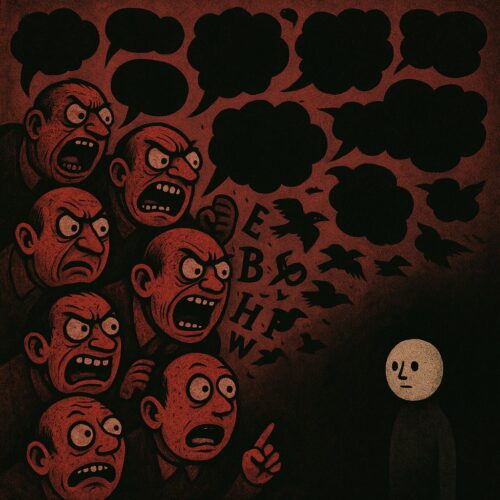We live surrounded by people who need thirty minutes to say what could fit in a single sentence. They talk in circles, spill jargon, and leave the conversation convinced they’ve been profound. But anyone listening just loses time and patience.
This is training. From school onward, the system enforces slowness. A simple idea is stretched into endless classes, as if dragging things out were a sign of wisdom. Adults are created who confuse rambling with intelligence and believe that talking a lot equals status. In schoolwork, a short, clear text is never enough: students are pressured to “elaborate” and fill pages. Quality drowns in quantity. Later, academia turns this defect into a virtue: bloated papers ramble to state the obvious and get rewarded.
Outside school, the pattern continues. In politics, long speeches hide empty decisions. At work, endless meetings eat up hours and resolve nothing. In scams, the same strategy: they talk endlessly, promise miraculous secrets, and sell courses or products that teach nothing. The rule is simple — what works doesn’t need many words. A hammer strikes, a lighter ignites, a knife cuts. The rest is fluff meant to deceive.
Excess words don’t communicate, they confuse and control. Whoever manipulates other people’s time and patience controls power. The mafia of empty words holds authority not through content, but through its ability to flood the space with nothing.
Direct clarity threatens this system. A raw sentence tears apart half an hour of theater. That’s why those who speak simply and objectively are seen as dangerous: they expose mediocrity and cut off the livelihood of those who live off noise.
The world doesn’t need long-winded speeches. It needs cutting, synthesis, and precision. The rest is verbal pollution, social noise designed only to distract and domesticate.
August 2025
This article is in English. Read the Portuguese version ⇒ Ler em português
